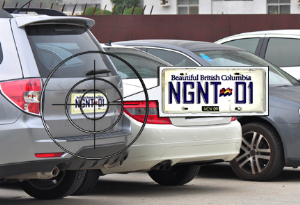
[Editor’s Note: An article about privacy concerns of the use of LPR technology. The primary point being the universal standard of data retention.] When Washington, D.C., began expanding the use of these license-plate readers a few years ago, there were discussions about the privacy issues connected with the use of license-plate recognition surveillance technology to gather and record drivers’ movements. One of the biggest questions remains: What happens to all the data on innocent individuals?
Often, we don’t know what the restrictions are on the collection and use of the data. A Washington Post report in December showed that we still don’t know what happens to all of the data, but here’s how some of it is used: In one Virginia county, the license-plate scanning technology is being used for tax collection.
In June, L.A. Weekly reported that, in California, the license-plate tracking data is being logged and kept by police even when individuals are not suspects.
Law enforcement agencies are going beyond searches for outstanding warrants or stolen vehicles. For example, Los Angeles police are keeping the data for 5 years. In the past few weeks, there have been several stories concerning the use of license-plate scanners and the privacy and civil liberties questions raised by the use of these devices.
Ars Technica reports on the rapid rise of the technology and the concerns about its use and how it affects individuals. “Today, tens of thousands of LPRs are being used by law enforcement agencies all over the country —practically every week, local media around the country report on some LPR expansion. But the system’s unchecked and largely unmonitored use raises significant privacy concerns. License plates, dates, times, and locations of all cars seen are kept in law enforcement databases for months or even years at a time. In the worst case, the New York State Police keeps all of its LPR data indefinitely. No universal standard governs how long data can or should be retained.“[…]
Source: privacylives.com
